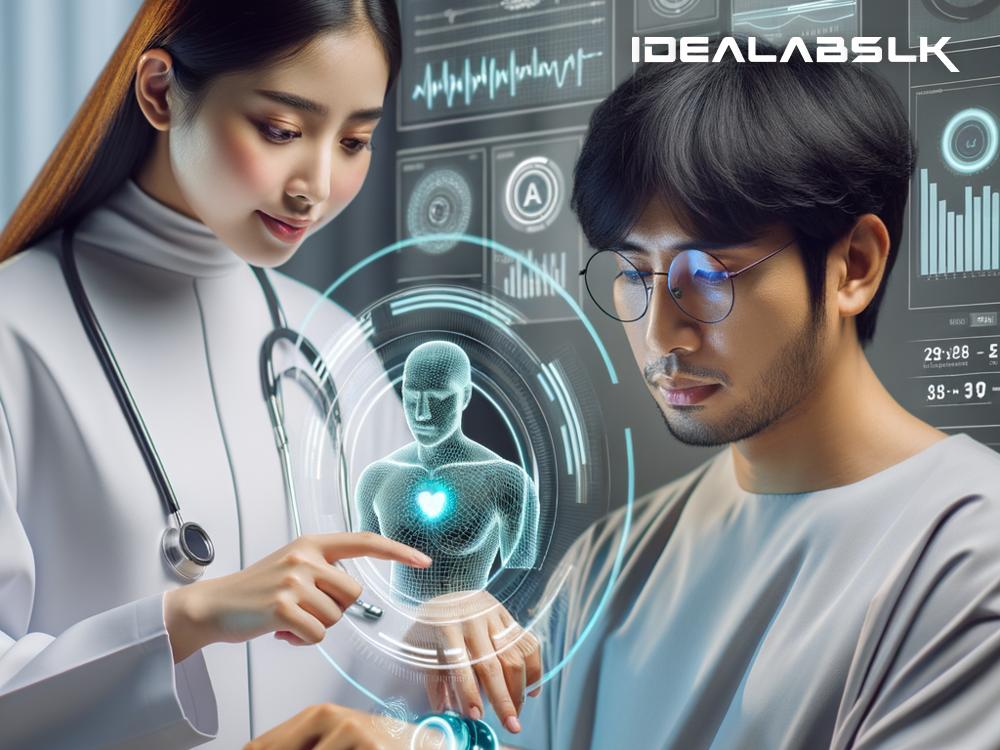The Future of Health: Top AI-Integrated Devices for 2025
In recent years, artificial intelligence (AI) has revolutionized many aspects of our lives, including how we manage and monitor our health. By 2025, it's expected that AI-integrated health monitoring devices will become even more advanced, providing us with unprecedented insights into our well-being and helping us to live healthier lives. In this article, we're diving into some of the best AI health monitoring devices projected for the year 2025, highlighting how they can make keeping tabs on our health easier and more efficient.
1. Next-Generation Smartwatches
Smartwatches have come a long way from merely tracking steps and sleep. By 2025, these wearable devices will be equipped with highly advanced AI algorithms capable of detecting a wide range of health issues, from heart irregularities to early signs of diabetes. These next-gen smartwatches will not only monitor your health in real-time but also offer personalized advice. Imagine your watch suggesting you hydrate more after a workout or advising you to rest because it detected early signs of fatigue.
2. Smart Health Monitors at Home
Imagine having a device at home that checks your health vitals every day and gives you a comprehensive report. This is not a far-off fantasy. By 2025, smart health monitors will be a common fixture in many homes. These devices, powered by AI, could measure blood pressure, cholesterol levels, and even stress markers from the comfort of your living room. They will alert you when there's something amiss, ensuring that you can act promptly to manage your health better.
3. AI-Powered Fitness Coaches
Fitness regimes are getting a major upgrade with AI integration. These digital trainers will go beyond suggesting workouts by analyzing your performance, adapting exercises to suit your fitness level, and providing feedback on your form. With sensors placed on your body or integrated into your workout gear, these AI coaches can offer real-time adjustments just like a personal trainer would, but with the added convenience of being available anytime, anywhere.
4. Sleep Improvement Devices
Getting enough quality sleep is crucial for health, and AI is here to help. By 2025, sleep improvement devices will use AI to analyze your sleep patterns thoroughly, including your REM cycles, any interruptions, and overall sleep quality. Based on this data, these devices can offer personalized suggestions to help you get a better night's rest, such as adjusting your room's temperature or even modifying your diet.
5. Health Tracking Patches
Wearable technology will get even more discreet with health tracking patches. These small, adhesive patches will monitor a wide range of health metrics 24/7, from heart rate and glucose levels to UV exposure. Powered by AI, these patches will not only track your health data but also predict potential health issues before they become a problem. Imagine a tiny patch on your arm alerting you to dehydration or an impending fever, allowing you to take immediate action.
6. Mental Health Monitors
Mental health is as important as physical health, and AI devices in 2025 will address this aspect comprehensively. Devices like smart bracelets or apps will monitor stress levels, mood patterns, and other mental health markers using AI algorithms. By recognizing the signs of stress or anxiety early, these devices can suggest activities or coping mechanisms to help maintain mental well-being, such as guided meditation or breathing exercises.
The Future Is Now
The year 2025 is shaping up to be an exciting time for health monitoring, thanks to the integration of AI in various devices. These tools will not only make it easier to keep track of our health but also offer personalized insights and advice to improve our well-being. As technology continues to evolve, it’s clear that the future of health monitoring is heading towards more personalized, accessible, and efficient care, making it easier for everyone to maintain a healthier lifestyle. The integration of AI in health devices is undoubtedly a game-changer, bringing us one step closer to a future where managing our health is seamlessly integrated into our daily lives.

